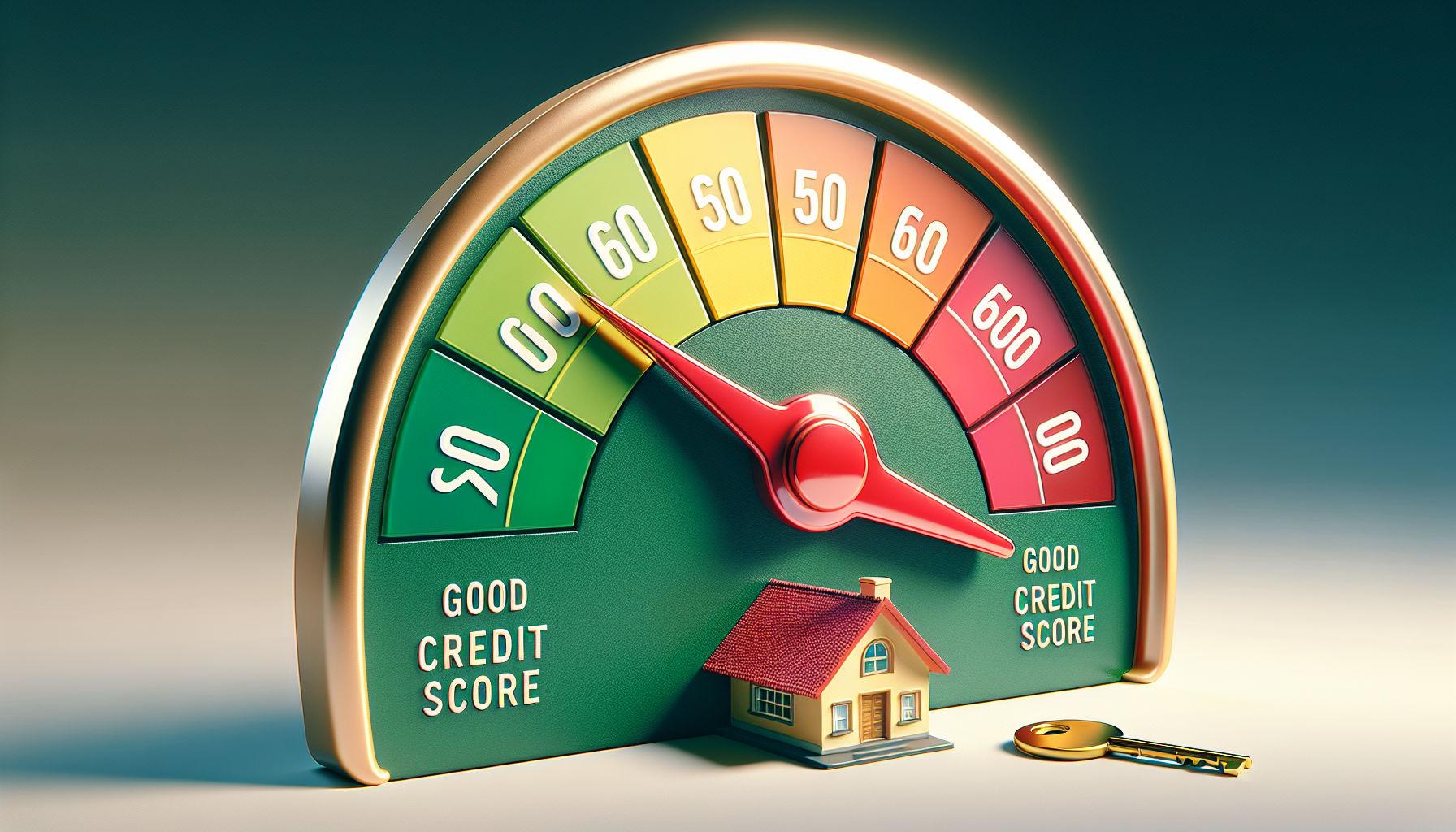
- Insurance
-
-
Most Popular
-
-
- Investing
-
-
Most Popular
-
Best Of
-
-
- Banking
-
-
Best of
-
Banking Reviews
-
Explore More
-
-
-
- Loans
-
-
Most Popular
-
Explore more
-
-
- Credit Cards
- Reviews
- Making Money
Understanding How Does Debt Consolidation Affect Buying a Home: A Comprehensive Guide
Considering a home purchase but puzzled about how debt consolidation might play a role? Addressing your key concern, this concise rundown will clarify if and how “does debt consolidation affect buying a home”. We’ll dissect the crucial elements—credit scores and debt-to-income ratio—that lenders scrutinize, ensuring you emerge with a confident grasp on your mortgage readiness. Expect a candid, straightforward guide to walk you through this cornerstone of financial planning.
Written by:
Key Takeaways
- Debt consolidation can influence mortgage eligibility by affecting credit scores and debt-to-income ratios; careful management of the consolidation loan can lead to improved credit, lower monthly payments, and increased mortgage approval odds.
- Timing of debt consolidation before applying for a mortgage is crucial, as it can affect credit scores and financial stability; strategic planning is imperative to present a favorable financial profile to lenders.
- There are several methods of debt consolidation, including personal loans, balance transfer cards, and home equity options, each with varying impacts on credit utilization and financial stability which can affect the home purchasing process.
Table of Contents
Navigating the Impact of Debt Consolidation on Mortgage Prospects
Debt consolidation can be likened to a game of chess—strategic moves are essential to improve one’s standing, yet each decision must be weighed for its immediate and future impacts. When you apply for a mortgage, lenders rigorously evaluate your financial situation. They examine your income, credit score, down payment capacity, and the critical debt-to-income ratio—all aspects that can be influenced by debt consolidation. While the allure of merging multiple debts into a single loan with potentially lower interest rates is undeniable, understanding how debt consolidation affect your initial drop in credit score due to credit inquiries can be a gambit that requires careful consideration.
Yet, it’s not just about the immediate effects. Over time, a properly managed consolidation loan can yield financial benefits like:
- lower monthly payments
- improved credit scores
- boosting your mortgage eligibility
- bringing your dream home within reach.
The Influence of Credit Scores on Home Loan Eligibility
The journey to homeownership inevitably passes through the realm of credit scores, a territory where numbers hold the power to open or close doors. A strong credit score is the cornerstone of mortgage loan approval, comprising a significant 35% of the FICO score and reflecting your financial history and payment consistency.
Embarking on a new debt consolidation loan may set off alarms with a hard inquiry, momentarily diminishing your credit score. Yet this is no cause for despair; rather, it’s an opportunity to rebuild and strengthen. Consistent, timely payments on a consolidation loan can be the building blocks to a revitalized credit score, while judiciously lowering credit utilization ratios contributes to a credit profile that lenders will regard favorably.
Assessing Your Debt-to-Income Ratio After Consolidation
As we navigate the waters of debt consolidation, the debt-to-income (DTI) ratio emerges as a beacon guiding mortgage lenders in their assessments. This ratio, a simple yet telling calculation of monthly debt payments versus gross monthly income, is a critical factor in the mortgage application voyage.
This is where debt consolidation can prove beneficial, potentially reducing monthly payments through lower interest rates and extended loan terms, and subsequently improving the DTI ratio. With a streamlined payment landscape, the DTI ratio becomes a compelling testament to your financial stability, and lenders take note. A lower DTI ratio is often synonymous with increased mortgage approval odds, positioning you as an attractive candidate in the eyes of those holding the purse strings.
Strategies for Timing Debt Consolidation Pre-Mortgage Application
Timing, in the grand scheme of financial planning, is more than just a factor—it’s an art. When to consolidate debt in the lead-up to a mortgage application can be as pivotal as the decision to consolidate itself. A premature move, for instance, can trigger a dip in credit scores just when you need them to shine, courtesy of the credit inquiries that consolidation loans necessitate.
Pausing the momentum of credit card usage to focus on consolidation can also inadvertently stall your credit-building endeavors, potentially delaying the score enhancements that a mortgage application would benefit from. Moreover, the restructuring of your debt landscape through consolidation may shift your DTI ratio, a key mortgage eligibility metric.
Hence, it is imperative to carefully plan your debt consolidation strategy to ensure that when you apply for a mortgage, your financial profile is depicted in the best possible light.
Exploring Types of Debt Consolidation and Their Effects on Home Purchasing

Like a home built from various materials, each with distinct benefits and challenges, the field of debt consolidation comprises diverse strategies, each influencing the home buying process in its own way. From the straightforward path of personal loans to the allure of balance transfer cards and the leveraging of home equity, these forms of consolidation carry distinct terms and repercussions for your financial profile and, by extension, your home buying aspirations.
Personal Loans: Balancing Monthly Payments with Mortgage Goals
A personal loan for debt consolidation can be a financial lifeline, reeling in the scattered debts of life into one manageable line of monthly payment. This consolidation not only streamlines bill management but may also offer lower interest rates than the high seas of average credit card rates, reducing overall expenses and freeing up funds for that pivotal mortgage down payment. While shorter loan terms promise a swifter journey to debt freedom, thus aligning with mortgage goals, a lower monthly payment achieved through consolidation can be the wind in your sails, easing your DTI ratio and smoothing the path towards mortgage qualification.
The harmony of balancing monthly payments, including your mortgage payment, with mortgage objectives through a personal debt consolidation loan positions you strategically on the chessboard of mortgage approval. By managing your mortgage payments effectively, you can achieve financial stability and long-term success.
Balance Transfer Cards: A Temporary Relief for Credit Utilization
Balance transfer cards offer a fleeting but potent reprieve in the journey to homeownership, providing a temporary harbor from the storm of interest payments. With introductory offers of 0% APR for a golden period, these cards can be a strategic play, granting short-term relief and a chance to steer your finances towards calmer waters.
When the high tide of credit card balances is transferred to the deck of a single balance transfer card, your credit utilization ratio—a critical component of your credit score—may see a significant decline, buoying your score as you navigate towards mortgage readiness. However, remember to maintain the old accounts with a zero balance, as this can help preserve a low credit utilization ratio and continue to positively influence your credit scores.
Tapping into Home Equity: Risks and Rewards
Venturing into the realm of home equity for debt consolidation is like embarking on a high-risk sea voyage; the potential gains are significant, but the dangers are equally formidable. Equity—the value of your property beyond the outstanding mortgage—can serve as a robust vessel for consolidating debt through vehicles such as cash-out refinances, home equity loans, or Home Equity Lines of Credit (HELOCs). Yet caution must be the watchword, as a return to the choppy waters of credit card debt post-consolidation can capsize your financial stability, leaving you adrift and complicating future borrowing.
Moreover, using your abode as collateral changes the stakes, potentially affecting your existing mortgage and borrowing capacity. It’s a high-stakes gamble that can consolidate multiple debts into a single obligation, but one that must be approached with a clear understanding of the potential impact on your creditworthiness and the ability to secure favorable mortgage terms in the future.
Preparing Your Finances for Mortgage Success Post-Degradation
Following debt consolidation, preparing your finances for a successful mortgage application is similar to orchestrating a grand performance. Diligence in reviewing your credit report for inaccuracies, akin to proofreading a script, can lead to score improvements that shine in the spotlight of mortgage approval. Innovative strategies, such as enlisting services like RentalKharma to report on-time rental payments, can enhance your credit history, adding depth to your financial narrative.
Stability is paramount; avoiding new debts and unnecessary credit cards helps sustain an optimal credit utilization ratio, a crucial measure for mortgage lenders. Engaging with a mortgage lender for counsel can provide you with a script of the impacts that consolidated debts may have on your home financing options, ensuring that when the curtain rises on your mortgage application, your financial performance is met with applause.
When to Consider Alternative Debt Management Solutions
Sometimes, the journey to homeownership may require exploring less conventional paths, where alternative debt management solutions can provide direction. Nonprofit credit counseling agencies emerge as beacons of hope, presenting structured payment plans, interest rate reductions, and budgeting advice that shine a light on a more holistic approach to financial management—an essential foundation for the home buying journey. Renowned experts, such as Louis Czerwinski, advocate for these services, highlighting their value over new debt consolidation loans for their comprehensive benefits, which extend beyond immediate debt relief to encompass fundamental financial habit reformation and mortgage acquisition strategies.
Credit counseling can provide a lifeline not just for the financially buoyant but also for those navigating the turbulent waters of medical expenses or divorce, offering a stable deck from which to embark on the voyage to homeownership. It’s imperative, however, to communicate your home-buying aspirations when engaging in a debt management plan, as certain terms may raise flags for mortgage lenders and impact your ability to secure favorable interest rates
Maximizing Your Mortgage Approval Odds While Managing Consolidated Debts
To increase your chances of mortgage approval while managing consolidated debt, it’s essential to strategically steer your financial ship. Engaging in financial planning is akin to charting a course through treacherous waters, requiring the use of tools like a written monthly budget and meticulous tracking of expenditures and bill payments.
Adherence to the principles of on-time bill settlement and steering clear of new debts can maintain the integrity of your financial hull, ensuring that it withstands the scrutiny of mortgage lenders. It’s worth noting that a default on a debt consolidation loan can be the iceberg that sinks your credit score, potentially derailing future mortgage aspirations or the chance for low-interest rates.
Therefore, managing debt consolidation with precision and foresight is key to securing mortgage approval.
Insights from Financial Experts on Debt Consolidation and Home Buying
Financial experts, acting as experienced guides in the realm of finance, highlight the strategic use of debt consolidation to simplify the path towards homeownership. Consolidating debt into a mortgage can simplify financial commitments, combining various payments into a single installment and, under the right circumstances, reducing the interest rate burden. This not only lightens the monthly financial load but can also lead to a more cost-effective journey over the mortgage’s lifespan, offering long-term benefits to the homebuyer.
Essentially, incorporating debt consolidation into the home buying process requires a comprehensive understanding of its financial advantages, which can improve mortgage terms and boost overall financial health when used effectively.
Summary
As we conclude our exploration into the multifaceted relationship between debt consolidation and home buying, it’s clear that this financial strategy can be both a powerful ally and a complex variable in the equation of homeownership. The key takeaways from our journey underscore the importance of a strategic approach to managing debts, the timing of consolidation efforts, and a deep understanding of how different consolidation methods can influence mortgage prospects. Embrace the insights and guidance offered throughout this discourse, and may they serve as your compass, steering you toward making informed decisions that lead to the realization of your home buying dreams.
Quick Questions
Consolidating your debt may initially lower your credit score, but it can improve over time with consistent payments, and it can also reduce your monthly debt payments, potentially improving your chances of getting a mortgage.
Consolidating your debt right before applying for a mortgage could temporarily lower your credit score and affect your debt-to-income ratio, so it’s crucial to consider the timing carefully. Strategic timing can help you avoid these negative impacts.
Using a balance transfer card for debt consolidation can provide short-term relief from high-interest payments and may improve your credit utilization ratio, benefiting your credit score. However, it’s crucial to consider long-term planning when using this strategy.
Tapping into your home equity for debt consolidation can impact your mortgage eligibility by complicating your existing mortgage situation and affecting your creditworthiness. This may make it challenging to secure favorable mortgage terms in the future.
Inform your credit counselor about your home-buying plans and seek tailored advice on how your debt management plan may affect your ability to buy a home and the interest rates you can expect. Communication with your credit counselor is crucial in this situation.

Join the MoneyMash community!
Sign up to get the latest personal finance news.
© 2025 MoneyMash an Element Road, LLC Company.
MoneyMash is an independent, advertiser-supported site. We may receive compensation when you click to apply for some products using the links that you find on our website. Opinions presented on our website are those of MoneyMash or our team of writers and reviewers who post their own opinions. For more information, please read the full disclosure.
